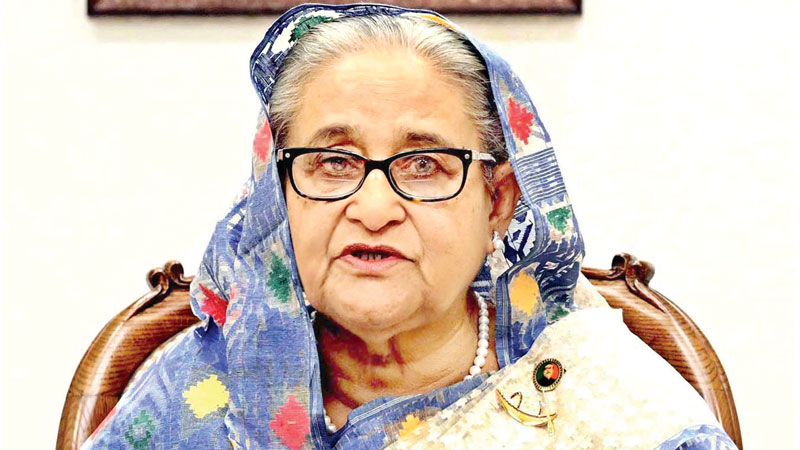Due to the impacts of climate change causing displacement, Prime Minister Sheikh Hasina has called for international assistance for the most affected countries. She emphasized the need to focus on five aspects of human mobility to address future humanitarian crises related to climate change.
In a video statement broadcast during the high-level meeting titled “Human Mobility in the Context of Climate Change: A Global Call for Action” organized by the International Organization for Migration (IOM) on Tuesday, Prime Minister Sheikh Hasina spoke about these issues.
She stated that climate-induced displacement occurs within national borders in many cases, and in some catastrophic situations, people are forced to move beyond their countries’ borders. To prevent human-induced crises, the most affected countries require international assistance and cooperation.
Sheikh Hasina highlighted the necessity for those affected by climate change, especially those displaced or trapped, to have access to essential services, security, and alternatives for livelihood. She also emphasized the need to focus on the following five key areas for addressing human mobility in the face of climate change.
Firstly, she called for a comprehensive approach aligned with the Global Compact to ensure safe, orderly, and regular human mobility concerning climate change. Secondly, she emphasized the need to assess our situation in light of climate justice to find specific solutions for climate-related impacts and damages. Thirdly, she stressed the importance of preparedness at the local, national, and international levels for climate-induced migration as the best possible solution.
Fourthly, Sheikh Hasina underscored the need for international cooperation in rehabilitating climate-displaced individuals, especially women, children, and other vulnerable groups. Finally, she suggested investing in advanced research data and evidence-based investments to develop a constructive position on the impact of climate change on human mobility.
The meeting, part of the 114th session of the International Organization for Migration (IOM) taking place in Geneva, Switzerland, involves discussions on various aspects of the organization’s agenda.

